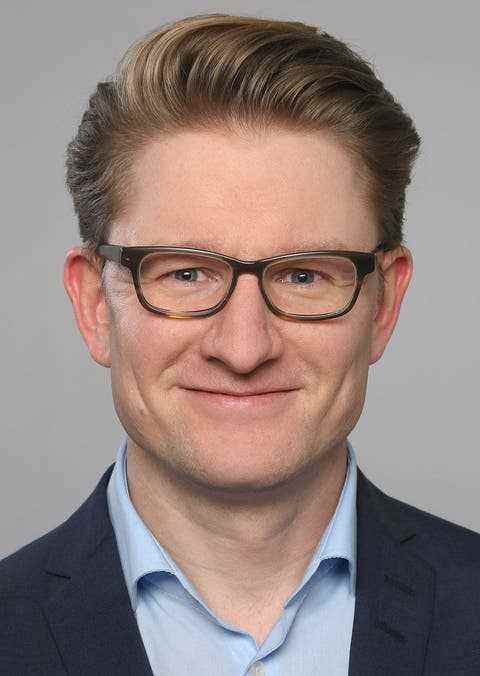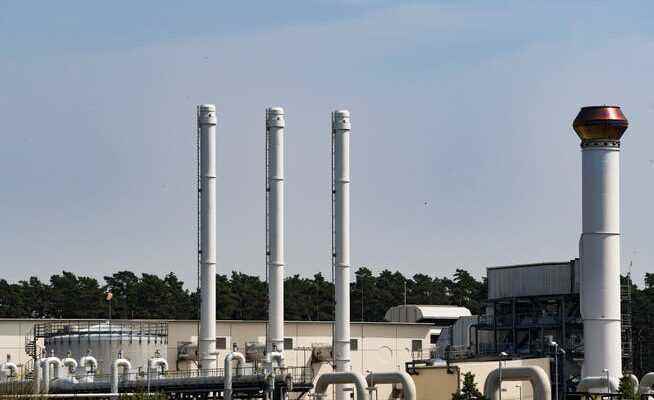Natural gas is flowing again. With the resumption of Russian gas supplies via the Nord Stream 1 pipeline, however, the overall picture of Putin’s power gamble has not changed. Economist and Russia expert Janis Kluge explains why.
Russian natural gas has been flowing through the Nord Stream 1 pipeline again since Thursday.
Mr. Kluge, natural gas is once again flowing through the Nord Stream 1 Baltic Sea pipeline, albeit at a reduced rate. The price of gas has fallen on the futures market. Was the fuss for nothing?
The resumption of deliveries has no bearing on the overall picture, as the situation is largely unchanged. In recent weeks and months, Russia has repeatedly reduced gas supplies under various pretexts. By maintaining the pipeline, Gazprom had an opportunity to further reduce it. The quantities are still at a low level even after the end of maintenance. And Kremlin ruler Vladimir Putin has already announced that these could fall even further. We are still in a situation where there is a threat of gas shortages in winter and where Russia is obviously trying to blackmail Germany and Europe with the gas lever.
A whole continent has been looking at this tube. Did Putin already achieve a goal simply because it was a demonstration of how dependent Europe is on Russia?
Putin is flexing his muscles. It is important for him that we look at these gas deliveries, that this receives a lot of attention from us. Europe should begin to doubt the sense of the sanctions. There are said to be cracks in the unity of Europe and in European societies. This is actually already noticeable. This is a partial success for Putin.
The EU Commission has made the proposal that the member countries should save 15 percent of their gas consumption. Spain, but also Greece and Portugal reject this. Is this already a break in the solidarity between the EU countries?

Economist and Russia expert Janis Kluge from the Science and Politics Foundation.
It’s not a break yet. However, memories of the financial crisis or the euro crisis are awakened when these southern countries demanded solidarity from Germany. In addition, Germany has made itself dependent on Russian natural gas against the resistance of Brussels and other EU countries. It is therefore understandable when other countries now say that they do not want to accept any cuts. A country like Poland also imported less Russian natural gas early on and relied on other sources. It is probably not fair if such countries have to foot the bill for Germany’s very high dependence on Russian natural gas.
How likely is it that Russia will stop gas supplies altogether? Moscow can cut off the flow of gas at any time.
I expect that Russia will try to put even more pressure on the EU and Germany in the coming months. Firstly, because the war in Ukraine will continue and Ukraine will become increasingly dependent on arms supplies from the West. That of course makes us Putin’s adversary in this war. That’s what we want to be, we want to stop this invasion. And the second reason is that the economic crisis in Russia will become more evident towards the end of the year. Then it is important for the Kremlin’s propaganda to be able to point to Europe, where the problems are even greater. So if the situation eases up here, deliveries from Russia will be further reduced.
Will Russia therefore already prevent the natural gas storage tanks in Europe from being filled in the summer?
There are two stages to the issue of energy security for this winter. The first stage is filling up the gas storage tanks. Even if the storage tanks are full, this is not enough to completely establish energy security for the winter. The second stage is the question of how well these gas storage facilities will carry us through the winter. This depends on many variables such as the weather. There are many voices in Russia who say that Europe should not be allowed to fill up the storage tanks. However, it may also be opportune for Russia to only completely cut gas supplies in the second stage, when it really counts and can become dramatic. Moreover, when the gas storage facilities are full, Europe could succumb to a false sense of security.
So Germany and Europe definitely have to prepare for the worst?
It would be the biggest mistake if we were to rely in any way on Russian gas in the winter. We must always assume that the situation in the Ukraine war will not ease. And as the conflict deepens, so does gas, which is his main weapon against Europe, become more important to Putin.
You mentioned that the economic crisis in Russia will become more visible towards the end of the year. Many in the West are disappointed that the economic sanctions are not having the impact they had hoped.
When it comes to sanctions, it is important to keep in mind that the effects in Russia are not discussed openly and neutrally. In Russia, the situation is glossed over. If we look at the raw numbers, we see that Russia’s gross domestic product has fallen by 6 percent since February. Most experts assume that this will expand to a 10 percent economic downturn by the end of the year. That would be the worst economic crisis that has ever happened in the Putin era. However, this is not discussed controversially in Russia. That is why the West sometimes gets the wrong impression that the sanctions will not hit Russia hard. Some of the sanctions only have a longer-term effect. The automotive industry in Russia is already almost completely idle. This is an industry that is dependent on some 100,000 jobs. If we had an economic crisis of this magnitude in the EU, we would have panicked a lot more.
However, the political reaction in the EU countries to the effects of the heightened energy crisis is already violent.
Putin has it easier in this respect. In Russia, power is not based on elections. In addition, the Russian state budget is relatively unaffected by the sanctions because it is heavily dependent on energy exports. Due to oil exports, Russia can do without the income from gas exports to Europe. Russia can continue to afford to fight this war. And the effects of the sanctions on the state budget will probably only become really clear in the next one to two years.
A few months ago, a natural gas embargo against Russia was still being discussed in Europe. Now Putin has taken matters into his own hands. What went wrong?
From the outset, one should have operated under the assumption that Russia could completely cut off gas supplies at any time. During the discussion of the gas embargo, the illusion was created that we could decide how much gas Russia would supply us with. The opponents of the embargo prevailed, but this also meant that we were not sufficiently prepared when it came to consumption. Germany and Europe reckoned without the host. Now we are in a situation where Moscow has largely introduced an embargo
To person
Janis Kluge is an economist at the Stiftung Wissenschaft und Politik in Berlin. His research interests include the relationship between Russia and China, Russian domestic politics, Russia’s economic elites, sanctions and their effects, and Russia’s economic development.
